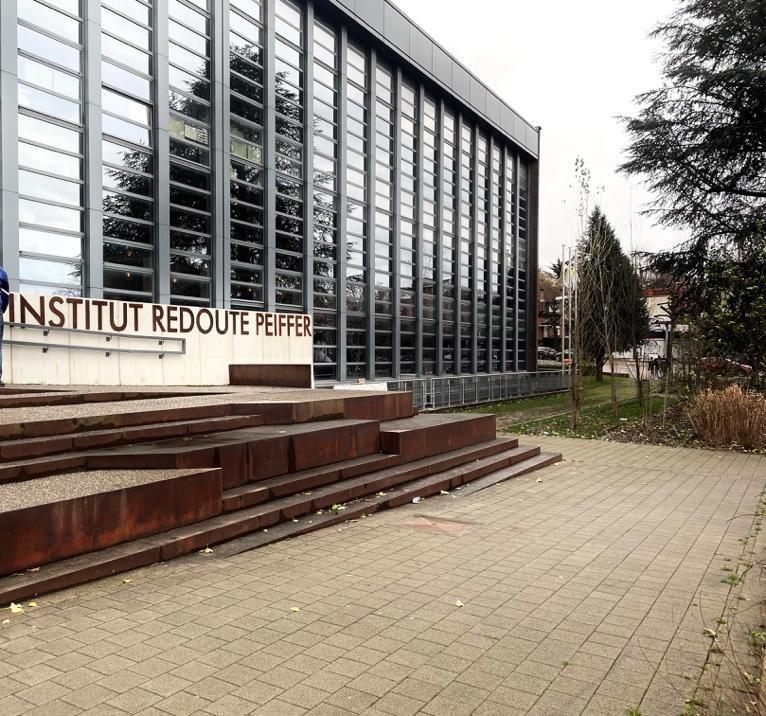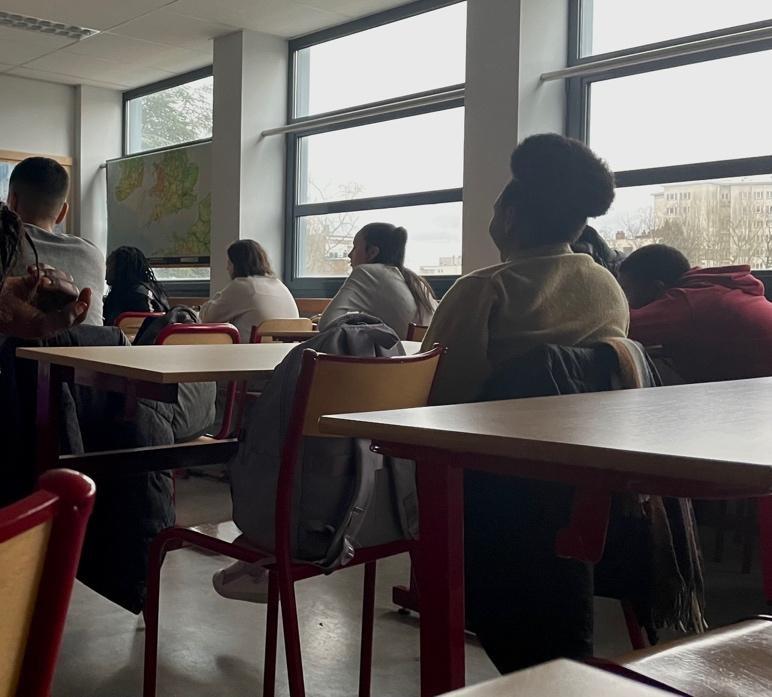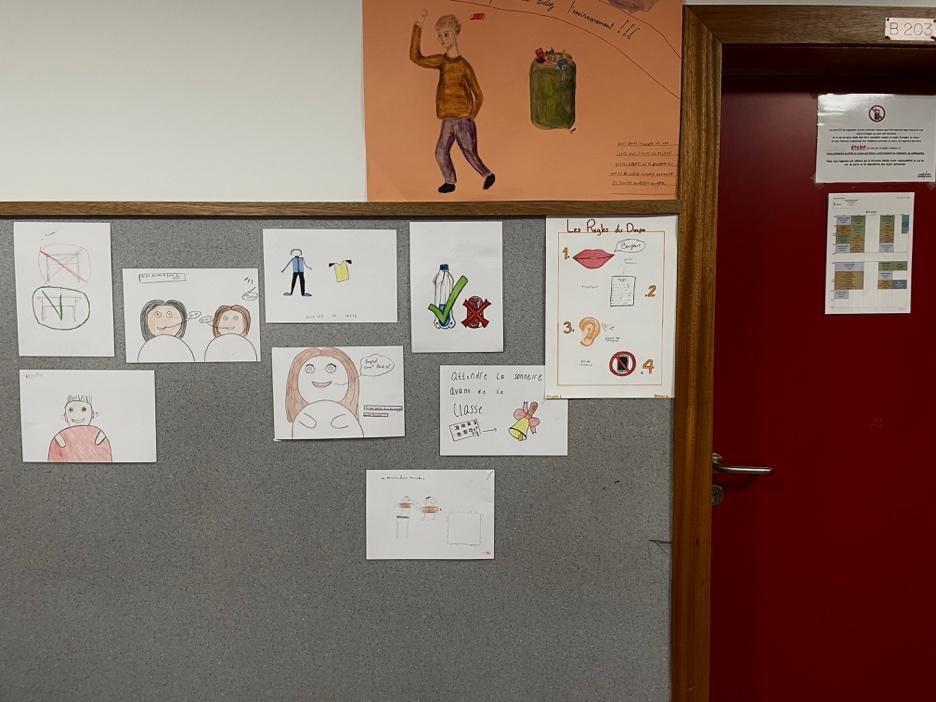
Education is a fundamental tool for integrating newcomers into society. In Belgium, a decree issued in 2019 aims to promote the integration of newly arrived students into French-speaking schools by ensuring the provision of tailored educational support that emphasises language mastery and cultural assimilation.
Two key programmes were established under the decree:
- Welcoming and Schooling Program for Newly Arrived and Assimilated Students (DASPA): a structure that assists newcomers in integrating into regular education.
- French Language Learning Support Program (FLA): a structure implemented in schools not offering DASPA that focuses on teaching the language of instruction.
In 2024 a total of 187 primary education and 70 secondary education institutions in Belgium run a DASPA programme. From 2020-2021, 2 338 students in secondary education were enrolled in the DASPA programme, with Brussels hosting the largest number (35.5%).
The Redouté-Peiffer Institute, used as an illustrative example below, is a Brussels-based school - located in a highly multicultural neighbourhood - which runs a notably robust DASPA programme.
Project Goal
The DASPA programme is designed for 2 groups of students. The first refers to 'newly arrived students' aged between 2.5 and 18 who have recently come to Belgium, including refugees, nationals of countries receiving specific aid, and stateless minors.
The second group comprises 'assimilated newly arrived students' aged between 5 and 18 who are non-Belgian citizens, Belgian nationals from non-French speaking regions who were abroad for over twelve months, or students who acquired Belgian nationality through adoption. They must have attended a French Community school for less than 12 months and have limited language proficiency.
The goal of the programme is to enable students to attain a sufficient level of French proficiency to integrate into a mainstream school class and continue their secondary education at the same level as other students. Therefore, their integration involves not only learning French but also assimilating to the school culture and the culture of Belgian society.

Image source: Institut Redouté Peiffer Brussels - DASPA, 2024
Who benefits

Image source: DASPA, 2024
The programme benefits a broad spectrum of students, ranging from students with no previous knowledge of French - some of whom require literacy support - to those who already have a grasp of the language and thus benefit from reinforcement through programme practice.
The blending of DASPA students with students from mainstream classes encourages social exchange and the progressive integration of the former, representing a net benefit for schools and society at large.
How it works
The duration of stay in DASPA ranges from 1 week to 1 year and can be extended for a maximum of 6 months. If deemed necessary, this can be extended for an additional 6 months.
In schools with only a few DASPA students (a minimum of 8 is required), everyone is grouped together in a single class, which can pose pedagogical challenges due to their different ages and French proficiency levels. Schools with a larger number of students can divide them into multiple classes, either according to specific criteria or randomly, with the aim of encouraging mutual support and collaboration among students.
The DASPA class schedule includes intensive French learning through both conventional lessons and play and interdisciplinary activities, as well as education on school culture, training in social sciences, philosophy, and citizenship, amounting to a minimum of 16 hours per week. Additionally, 8 hours are dedicated to mathematics and sciences. Each class takes part in cultural outings once a month, as required by the decree. On 7 December, students distributed soup and cakes they had prepared for Brussels' homeless as part of a solidarity project aimed at teaching them values of solidarity and sharing. The school has a project called Les Daspasiens solidairesthrough which students participate in solidarity actions, by making soap and sorting clothes for the homeless.
The Redouté-Peiffer Institute has replaced one hour of artistic education with one hour of Dutch language teaching, acknowledging the importance of learning this second language in the Brussels-Capital Region. As for the teaching methods applied within the classes, teachers are free to teach French as they see fit. The teaching of mathematics or art aligns with how these subjects should be appropriated in French by students who will soon enter a regular class.
The guidelines for the 2022-2023 school year set by the Wallonia-Brussels Federation outline a list of members of the Integration Council of DASPA, who are tasked with making all decisions regarding the educational trajectory of newly arrived students. It is specified that a member of the Psycho-Medical-Social Center (CPMS) must be part of this Integration Council, and if unavailable a representative from the reception center responsible for school support must replace them. There is therefore no formal obligation for a CPMS member, whether a psychologist or a social worker, to be assigned to support DASPA students.
Results
During a parliamentary oral question on 28 January 2020, Sabine Roberty from the Socialist Party addressed Caroline Desir, Minister of Education, on DASPA. Desir emphasised the need for individualised, intensive support before integration into the DASPA in structures like La Petite École, referencing criticism suggesting limitations in the programme's effectiveness (particularly regarding its short duration and its limited offer of psychological support). Desir also highlighted ongoing efforts to improve DASPA and mentioned plans for a monitoring committee to evaluate its impact in the future.

Image source: DASPA, 2024
Due to its exceptionally high number of students, the Redouté-Peiffer Institute currently operates a total of 5 DASPA classes, one for each language proficiency level. Each class presently has around 15 students, with this number considered the maximum the school can manage. The Institute receives daily requests to enroll new students, but unfortunately not does not have the capacity to accept them all. However, due to frequent movements between proficiency levels, it is often possible to accommodate newcomers every 3 to 6 months.
Within a few months, students aged 12 to 18 from various corners of the world (Ukraine, Syria, Cameroon, Afghanistan, Moldova, Brazil and Morocco, among others) seem to have successfully adapted to a new language and culture in Brussels, as observed in classes of level 3, 4 and 5. The French spoken by students in the level 5 class is virtually indistinguishable from what one might hear in a regular class. Despite this, it has been noted that some students who complete the level 5 class still struggle upon entering mainstream schooling.
Evaluation
'There is no magic formula for success in DASPA', said Director Patrick Reniers. It appears that teachers in charge of DASPA students must adapt to each situation, as progress can significantly vary from one student to another. While students who already master one or more reference languages seem to have an advantage in their advancement, teachers assert that the students’ 'personal motivation' is the most decisive factor in their success, a motivation that is often nurtured by quality guidance. To help students to obtain their high school diploma within a reasonable timeframe, teachers of the Redouté-Peiffer Institute make every effort to ensure that they do not remain in the programme for more than 18 months.
As in other schools, the Institute requires more staff than it currently has: a team of psychologists, speech therapists, and social workers should be exclusively tasked with supporting the DASPA students, according to the teachers. The decree's loose reference to their presence without formal guidelines is reflected in the reality on the ground and falls short of meeting the needs of the DASPA students, especially Unaccompanied Foreign Minors (MENA) who represent a particularly vulnerable category requiring specialised support upon their arrival.
Funding and resources
Schools subsidised by the Wallonia-Brussels Federation (the French-speaking Belgian community) receive funds to organise a DASPA programme within their institution.
The European Commission's Asylum, Migration and Integration Fund (AMIF) 2021-2027 programme also contributes through the allocation of €4 250 000 to DASPA class projects.
About this good practice
- Geographic area
- Belgium
- Organisation
- Fédaration Wallonie-Bruxelles Enseignement
- Website
Details
- Posted by
